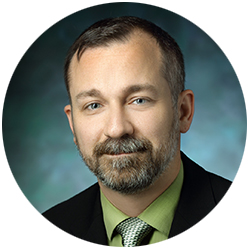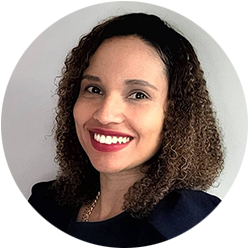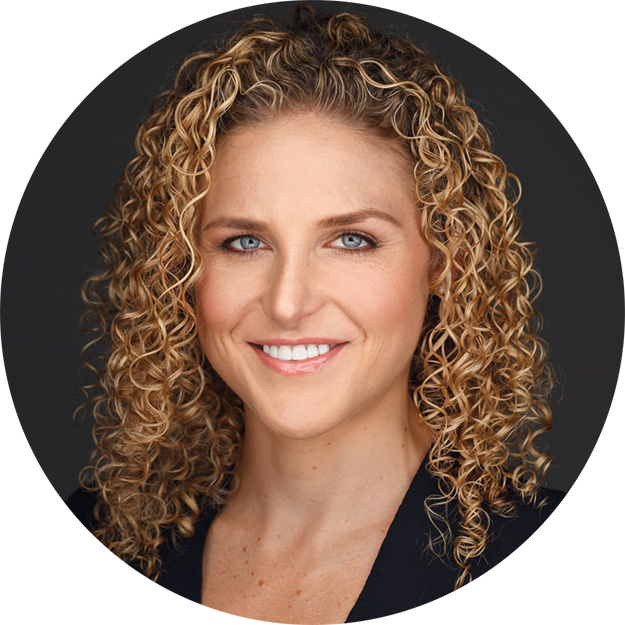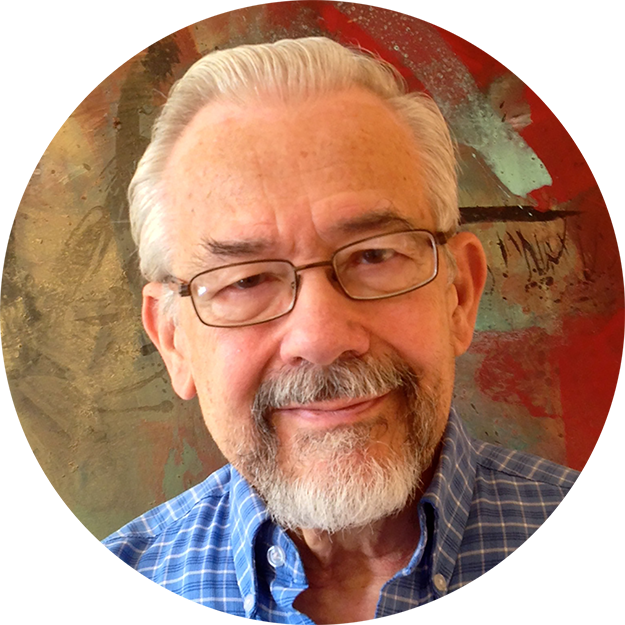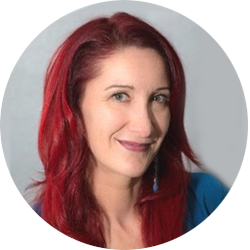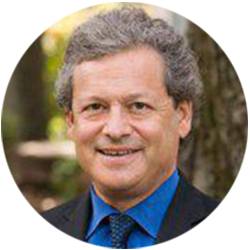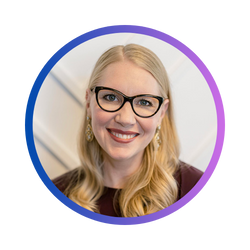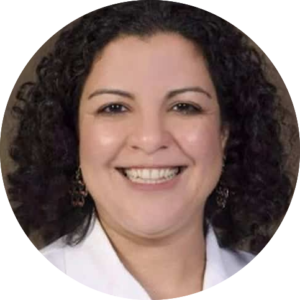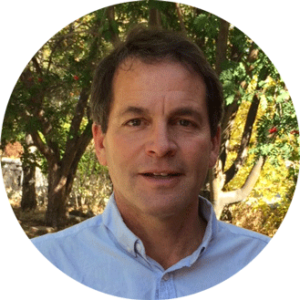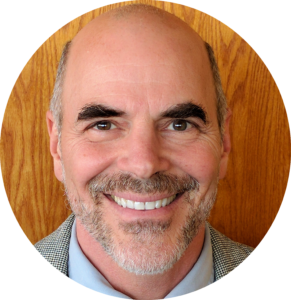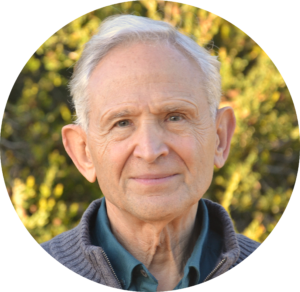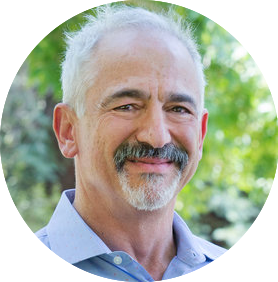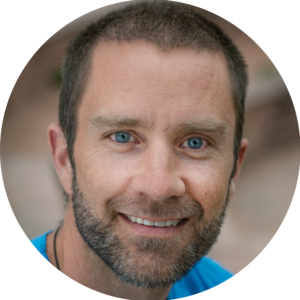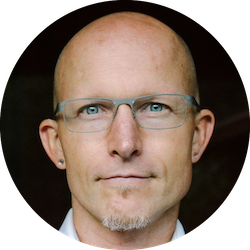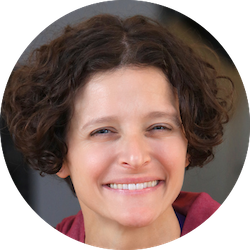Get Certified as a Psychedelic-Assisted Therapy Provider (PATP)*
Year-Long Program
January 2025 – October 2025
The fifth-wave of psychotherapy has arrived, and there’s no better time than now to get involved with psychedelic therapy. This program will get you trained to get involved with ketamine-assisted therapy right away, and get you prepared for the anticipated approvals of MDMA and Psilocybin in the near future.
Over 1,500 Students Trained
- 256 hours learning
- 90% live virtual learning
- Research-backed lectures and materials
- 30+ faculty members comprised of world-renowned leaders & top-tier experts
- Optional in-person ketamine practicum
- Optional in-person psilocybin practicum
- Supportive community of like-minded peers
Take your practice to a new frontier with the incredible power of psychedelic therapy.
Limited spaces available. Please apply now to ensure we can accommodate your application.

“The energy of the training experience is like no other professional training I’ve attended. The immediate sense of community, openness, curiosity, and connection adds a depth to the information so it can be more fully integrated in both personal and professional spheres.”
Amber Kerby, LMFT
Iowa

Collaborations + Approvals

Colorado passed the Natural Medicine Health Act allowing for the therapeutic use of psilocybin as a mental health treatment with services expected by mid-2025. The Colorado Division of Regulatory Agencies (DORA) oversees the clinical regulation of this act. This groundbreaking act permits licensed medical providers and mental health professionals to provide psilocybin services for mental health treatments under state law. In order to be eligible to become a licensed facilitator in Colorado, the facilitator must graduate from a DORA approved program. IPI was the first approved program in Colorado. Participants who successfully complete the Colorado Natural Medicine requirements will become eligible to apply for licensure as a natural medicine facilitator in Colorado.

Oregon is the first state that passed a Psilocybin Services act with plans to deliver services as early as January, 2023. The Oregon Health Authority oversees the implementation of this progressive act. In order to be eligible to become a licensed facilitator in Oregon, the facilitator must graduate from an approved program. The IPI Psychedelic-Assisted Therapy Training program was one of the first programs approved by the Oregon Health Authority. Students who successfully complete the program and all practicum requirements will become eligible to apply for licensure as a psilocybin services facilitator.

IPI is proud to be collaborating with The American Society of Ketamine Physicians, Psychotherapists, and Practitioners. ASKP3 is a non-profit group of professionals dedicated to the safe clinical use of ketamine for mental health disorders and pain conditions. Members of the ASKP3 board act as partner participants in the IPI training and give regular feedback about the ketamine assisted psychotherapy curriculum.

IPI is proud to be collaborating with Usona Institute. Usona Institute is a 501(c)(3) non-profit medical research organization dedicated to supporting and conducting pre-clinical and clinical research to further the understanding of the therapeutic effects of psilocybin and other consciousness-expanding medicines. Usona researchers act as partner participants in the IPI training and give regular feedback about the psilocybin assisted psychotherapy curriculum.
Who should join the Psychedelic-Assisted Therapy Training?
This training is designed for therapists, physicians, nurses and other allied mental healthcare professionals who want comprehensive training in psychedelic-assisted therapy, in order to utilize ketamine as a psychedelic medicine and ready themselves for the anticipated approvals of MDMA and psilocybin.
This program is definitely for you if:

The IPI Online Psychedelic-Assisted Therapy Program is a year-long course, taught by more than 30 experts in psychedelic-assisted therapy and research. This program will educate practitioners about the protocols of investigational psychedelic-assisted therapy treatments for PTSD, depression, anxiety, and more. It will also dive into the details of what research and practice have uncovered in the realm of psychedelic sciences, therapeutic processes unique to psychedelic therapy, preparation, dosing, integration, clinic models, and how psychedelics work in combination with other types of therapies.
This 256-hour program was designed from the ground up to be taken online, allowing a busy therapist to take it without traveling.
Participants who attend the in-person psilocybin Training Practicum live portion of the training will be eligible to become an IPI Certified Psychedelic Assisted Therapy Practitioner. If you do not choose the psilocybin in-person Training Practicum option you may still earn a certificate of completion upon the successful completion of program requirements, but you will not be eligible for the certification IPI offers.

“World-class scholars, profoundly inclusive seminar, lots of new material for me that has rekindled my interest in many areas of therapy in addition to psychedelics. Bravo!”
Randy Buzan, MD
Colorado
Who Can Apply:
You must have an advanced degree in either medicine or mental health in order to apply. If you are an early career mental health or medical professional, we encourage you to apply so we can discuss your situation and evaluate whether this program fits for your level of experience.
Professional Clinical Counselors (LPC)
The hard truth about mental illness
The field of therapy has achieved many important advances over the last few decades. But despite these advances we are unfortunately not making a significant dent in the massive mental health crisis on this planet.
2030
Depression is now the leading cause of disability worldwide and is predicted by 2030 to be the leading cause of the global burden of disease by the World Health Organization.
90%
90% of people experience trauma in their lifetime, according to a 2013 study. About 8 million people have PTSD in the U.S. in any given year. For our veterans, the PTSD and suicide rates are much higher. It’s hard to accept the statistic reported by the Veterans Administration that 22 veterans die by suicide each day.
1 in 5
adults experience some form of mental illness each year, and of these patients many have symptoms so severe their illness dramatically reduces their quality of life, limiting what they can and cannot do.
Tuition Details
Tuition w/o Training Practicums:
$10,000
Early Registration PIF Discount w/o Training Practicums Available Until December 31st, 2024:
$7,000
Add-On: In-Person Psilocybin Training Practicum (required for certification, does not include travel expenses, additional fees apply for completing all Oregon and Colorado requirements):
$3,000
Add-On: In-Person Ketamine Training Practicum Fees (does not include travel expenses):
$2,000
Limited spots available
Long-term payment plan options
may be available on your discovery call
may be available on your discovery call

“I was so taken back at how inclusive this program was. As a therapist of color, many trainings and programs include culture as part of the program. This program was different; it did not include culture, it made it the foundation of learning from every aspect. I felt seen, heard, and understood.”
Ektha Aggarwal, LCSW
California

“There was an immediate sense of connection and kinship with my peers. I would absolutely recommend this program to others.”
Marton Manyai, Pastor, Hungary
IPI Psychedelic-Assisted Therapy Program Participant

“Recent data suggest that ketamine, given intravenously, might be the most important breakthrough in antidepressant treatment in decades. First and most important, several studies demonstrate that ketamine reduces depression within six hours, with effects that are equal to or greater than the effects of six weeks of treatment with other antidepressant medications. Second, ketamine’s effects have been noted in people with treatment-resistant depression. This promises a new option for people with some of the most disabling and chronic forms of depression, whether classified as major depressive disorder or bipolar depression. Third, it appears that one of the earliest effects of the drug is a profound reduction in suicidal thoughts.” (October 1, 2014 NIMH Director’s Blog)
Tom Insel MD, former Provost of Harvard University, American neuroscientist and former Director of the National Institute of Mental Health (NIMH) from 2002 until November 2015
The Integrative Psychiatry Institute program is unlike any other psychedelic training offered. Not only will you learn from the world’s leading experts in psychedelic therapy, you also will learn an approach to mental healthcare that is long overdue.
Imagine not only offering clients a breakthrough with psychedelics, but also having an entirely new framework for mental health and the knowledge to properly set up clients for a path forward.
Watch the video to hear from an IPI Psychedelic Assisted Therapy Program participant about what it’s like to learn at the Integrative Psychiatry Institute and how we are different.
Laura Haberer, LCSW – IPI PAPT Participant
Illinois
Join the revolution and apply
to become a psychedelic-assisted therapy provider.
to become a psychedelic-assisted therapy provider.
Limited spots available
How we are different from other psychedelic therapy trainings
-
Gain proficiency in a new therapy modality online in a year-long format
-
Engage with over 30 faculty experts
-
Learn how to get involved in ketamine-assisted therapy now
-
Get prepared for MDMA therapy and Psilocybin therapy
-
90% live virtual learning with tons of faculty and teaching assistant contact
-
Community forum with faculty involvement for answers to your questions
-
In-person ketamine experiential Training Practicum option
Limited spots available


“Right out of the gate the integrative nature of the training has been an amazing way to deepen the connections that psychedelics inherently create. The teachers are super open, professional, vulnerable, great communicators and knowledgeable.”
Lindsay Coulter, LPC, ATR
Guatemala
Featured Lecturers
You will be supported throughout your studies by a faculty of world-renowned leaders in psychedelic-assisted therapy and research. The faculty at the Integrative Psychiatry Institute is composed of the top-tier experts in their respective fields, teaching you the research, science and clinical skill sets needed for the use of ketamine, MDMA and psilocybin therapies.

Gabor Maté, MD
Gabor Maté is a retired physician who, after 20 years of family practice and palliative care experience, worked for over a decade in Vancouver’s Downtown East Side with patients challenged by drug addiction and mental illness…
Read more
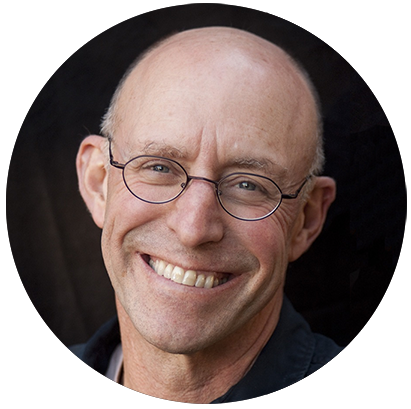
Michael Pollan
For more than thirty years, Michael Pollan has been writing books and articles about the places where the human and natural worlds intersect: on our plates, in our farms and gardens, and in our minds. Pollan is the author of eight books, six of which have been New York Times bestsellers; three of them (including his latest, How to Change Your Mind) were immediate #1 New York Times bestsellers…
Read more

Rick Doblin, PhD
Rick Doblin, PhD, is the founder and executive director of the Multidisciplinary Association for Psychedelic Studies (MAPS). He received his doctorate in Public Policy from Harvard’s Kennedy School of Government, where he wrote his dissertation on the regulation of the medical uses of psychedelics and marijuana…
Read more
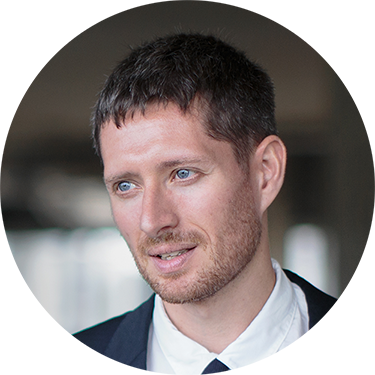
Robin Lester Carhart-Harris
Robin Carhart-Harris moved to Imperial College London in 2008 after obtaining a PhD in Psychopharmacology from the University of Bristol, focused on the serotonin system, and an MA in Psychoanalysis from Brunel University, 2005. Robin has designed human brain imaging studies with LSD, psilocybin, MDMA and DMT, a clinical trial of psilocybin for treatment-resistant depression…
Read more

Annie Mithoefer, BSN
Annie Mithoefer, BSN, is a Registered Nurse living in Asheville, NC. She was co-investigator on two of the MAPS-sponsored Phase 2 clinical trials for individuals with PTSD and a pilot study treating couples combining MDMA-assisted psychotherapy with Cognitive Behavioral Conjoint Therapy for PTSD…
Read more
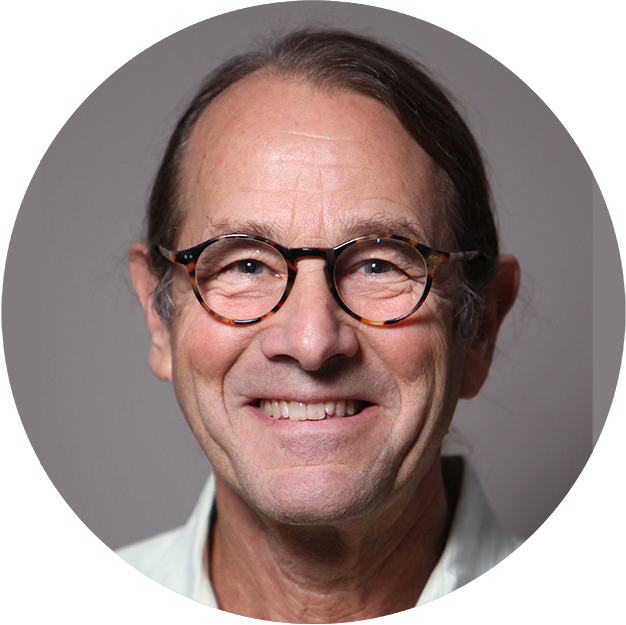
Michael Mithoefer, MD
Michael Mithoefer, MD, is a psychiatrist living in Asheville, NC, with a research office in Charleston, SC. In 2000 he began collaborating with MAPS on the first US Phase 2 clinical trial of MDMA-assisted Psychotherapy. He and his wife Annie have since conducted two of the six MAPS-sponsored Phase II clinical trials testing…
Read more
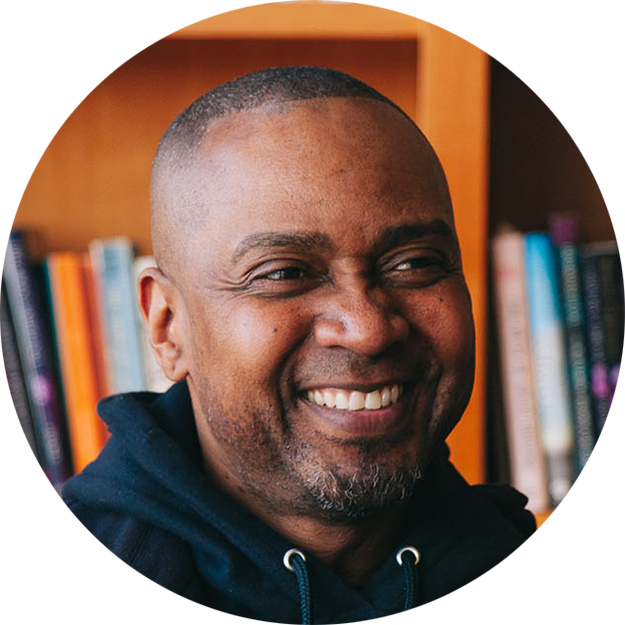
Resmaa Menakem, MSW, SEP
Resmaa Menakem, New York Times bestselling author of My Grandmother’s Hands: Racialized Trauma and the Pathway to Mending Our Hearts and Bodies, is a visionary Justice Leadership coach, organizational strategist and master trainer. Resmaa is a leading voice in today’s conversation on racialized trauma. Resmaa created Cultural Somatics, which utilizes the body and resilience as mechanisms for growth…
Read more
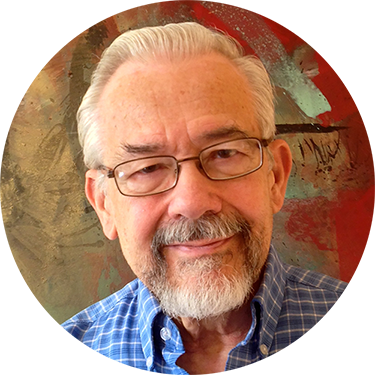
William Richards, PhD
Bill A. Richards, PhD, a psychologist in the Center for Psychedelic and Consciousness Research in Baltimore, has been implementing research studies with psilocybin within the psychiatry department of the Johns Hopkins School of Medicine since 1999. He also is associated with the Program in Psychedelic Therapies and…
Read more

Joan Borysenko, PhD
Joan Borysenko, Ph.D., is a distinguished pioneer in integrative medicine and is a world-renowned expert in the mind/body connection. Her work has been foundational in an international healthcare revolution that recognizes the role of meaning and spirituality in health and healing…
Read more

Allyson Grey, MFA
Allyson Grey is a painter and social sculptor. With an MFA from Tufts University, Grey has long been an art educator, arts organizer and muse to artists worldwide. Since art school in 1975, Allyson has collaborated and shared a studio with the artist, Alex Grey. The Grey’s co-founded the Chapel of Sacred Mirrors, (CoSM; cosm.org), a spiritual retreat center for artists outside of New York City…
Read more
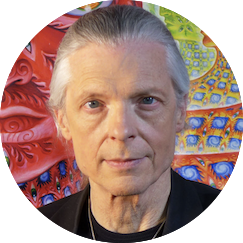
Alex Grey
Alex Grey’s legendary visionary art has been featured in venues as diverse as the album art of TOOL, SCI, the Beastie Boys and Nirvana, Time and Newsweek magazines, the Discovery Channel, rave flyers and sheets of blotter acid. Exhibited worldwide, Alex’s art has been honored with solo exhibitions at Feature Inc., Tibet House, Stux Gallery, P.S. 1, The NYC Outsider Art Fair, The New Museum in NYC, the Grand Palais in Paris, the Sao Paulo Biennial in Brazil…
Read more

Lecturers
The faculty at the Integrative Psychiatry Institute is composed of the top-tier experts in their respective fields, teaching you the latest breakthroughs in psychiatric care.

Kekuni Minton, PhD
Kekuni Minton, PhD, is a founding trainer of Sensorimotor Psychotherapy Institute (SPI) and co-author of Trauma and the Body: A Sensorimotor Approach to Psychotherapy (2009)…
Read more

Arielle Schwartz, PhD
Arielle Schwartz, PhD is a licensed clinical psychologist, EMDR Therapy consultant, and certified yoga instructor with a private practice in Boulder, Colorado…
Read more

Megan Oxley, MD
Megan Oxley, MD is the founder and medical director of Michigan Progressive Health. A Board Certified Emergency Medicine physician, Dr. Oxley graduated from prestigious Wayne State University in 2009…
Read more

Ian Wickramasekera, PsyD
Ian Wickramasekera, PsyD, a clinical psychologist and have been a teacher of transpersonal psychology for over 20 years. He taught counseling related courses at Naropa University since 2015 and previously taught at Saybrook University…
Read more
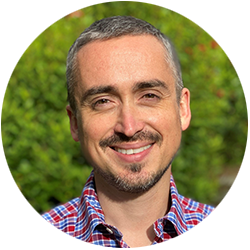
Chris Stauffer, MD
Chris Stauffer, MD is dual board-certified in Psychiatry and Addiction Medicine and is Assistant Professor of Psychiatry at the Oregon Health & Science University (OHSU) and Physician Scientist at the Portland VA Medical Center…
Read more

Shannon Carlin, MA, LMFT
Shannon Carlin, MA, LMFT, is the Director and Head of Training and Supervision at the MAPS Public Benefit Corporation (MAPS PBC), a wholly owned subsidiary of the Multidisciplinary Association for Psychedelic Studies (MAPS)…
Read more

Sandhya Prashad, MD
Sandhya Prashad, MD is a board certified psychiatrist specializing in interventional modalities for treatment resistant disorders with a particular interest and expertise in ketamine therapy. She completed both medical school and psychiatry residency at Baylor College of Medicine…
Read more

Amy Emerson, BA
Amy Emerson, BA, is the Chief Executive Officer at the MAPS Public Benefit Corporation (MAPS PBC), a wholly owned subsidiary of the Multidisciplinary Association for Psychedelic Studies (MAPS), a 501(c)(3) non-profit organization…
Read more

Berra Yazar-Klosinski, PhD
Berra Yazar-Klosinski, PhD, is a Deputy Director of the 501(c)(3) non-profit Multidisciplinary Association for Psychedelic Studies (MAPS). She also serves as the Chief Scientific Officer (CSO) for the MAPS Public Benefit Corporation (MAPS PBC)…
Read more

Charles Raison, MD
Charles Raison, MD, is the Mary Sue and Mike Shannon Chair for Healthy Minds, Department of Psychiatry, University of Madison, WI. He is the co-author of “The New Mind-Body Science of Depression” published by W.W. Norton in 2017…
Read more
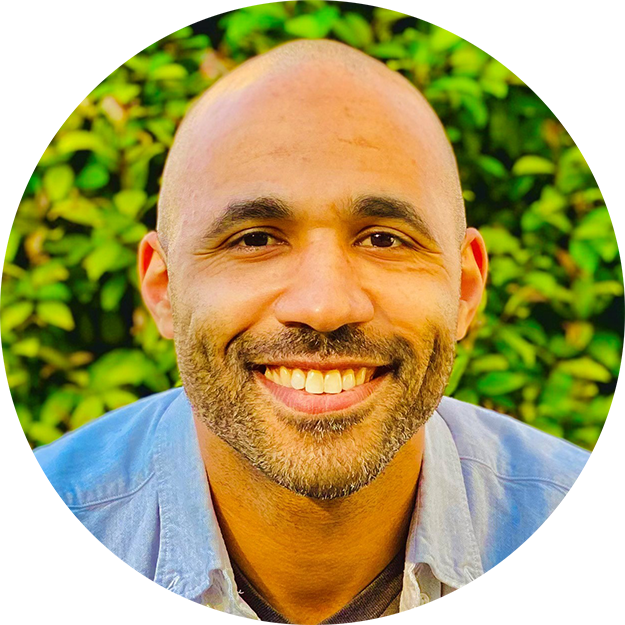
Joseph McCowan, PsyD
Joseph McCowan, PsyD, is a licensed clinical psychologist and psychotherapist, currently working in Los Angeles as a co-therapist in the MAPS sponsored phase 3 clinical trials of MDMA-Assisted Psychotherapy for PTSD…
Read more

Devon Christie, MD
Devon Christie, MD, is a family physician and certified Functional Medicine provider with a focused practice in chronic pain management. Devon is also a Registered Therapeutic Counsellor and certified Relational Somatic Therapist…
Read more

Terence Ching, PhD
Terence Ching, PhD, is a postdoctoral associate at the Yale OCD Research Clinic. Terence received his PhD and Master’s in clinical psychology from the University of Connecticut. Prior to moving to the United States, Terence received his Bachelor’s and Master’s degrees in psychology at the National University of Singapore…
Read more
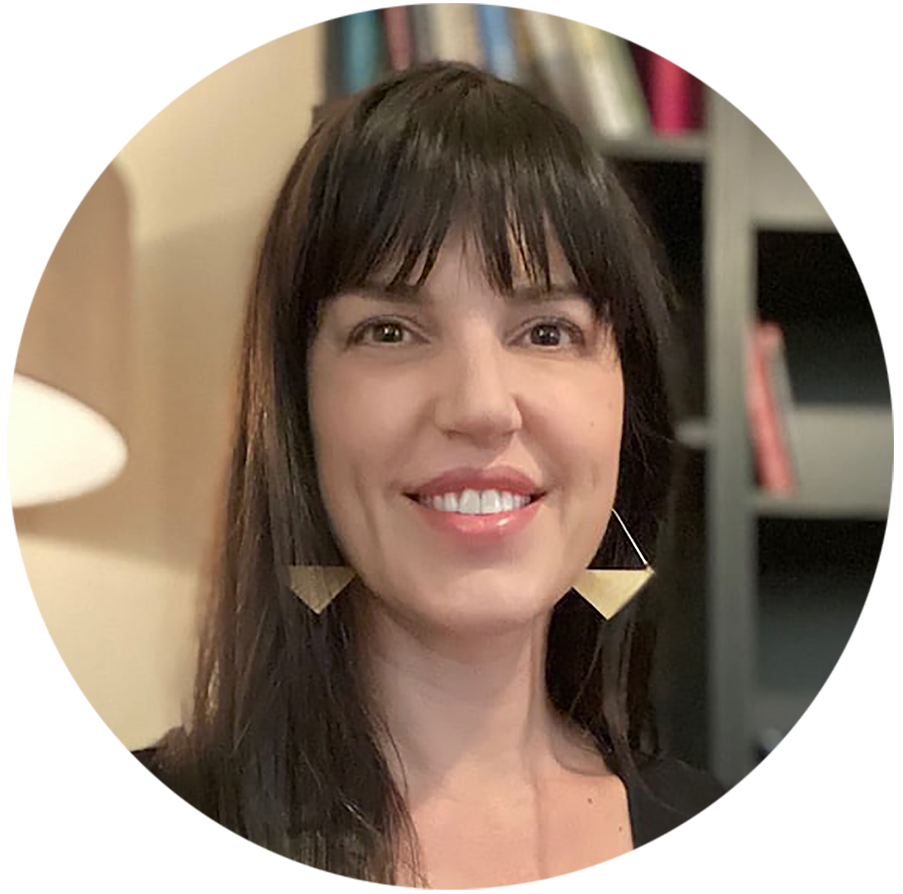
Brooke Balliett, LMFT
Brooke Balliett, LMFT, is a licensed marriage and family therapist in Los Angeles, CA. Brooke has a passion for treating psychological, spiritual, emotional and relationship challenges through the development of self-awareness, emotional intelligence and recognition of the healing power we each inherently hold inside of us…
Read more

Torsten Passie MD, MA
Torsten Passie MD, MA is a professor of psychiatry and psychotherapy at Hannover Medical School and visiting scientist at the Goethe University Franfurt/Main (Germany). He studied philosophy, sociology (M.A.) at Leibniz-University Hannover and medicine at Hannover Medical School…
Read more

Mariel Buqué, PhD
Mariel Buqué, PhD is a Columbia University-trained licensed psychologist, holistic mental health expert, and sound bath meditation healer. Her work centers on helping people heal their whole selves through holistic mental wellness practices…
Read more

Sara Lewis, PhD, LCSW
Sara Lewis, PhD, LCSW, is an Associate Professor and Chair of Contemplative Psychotherapy and Buddhist Psychology at Naropa University, where she also serves as Faculty Director for Psychedelic Studies…
Read more
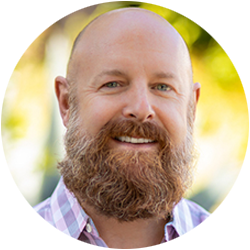
Gregory Wells, PhD
Gregory Wells, PhD (he/him/queer) is a licensed psychologist based in San Francisco. He is a clinician and researcher in the field of psychedelic medicine and a supporter of cognitive liberty and decriminalization. He obtained his doctorate degree from UT-Austin…
Read more
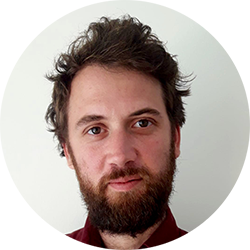
Nicholas Spiers
Nicholas Spiers is an anthropologist and documentary filmmaker. He co-founded Agua de Rayo, a non-profit civil organization based in Mexico’s Sierra Mazateca, which is invested in visual ethnography and community projects and which also has an interest in Mazatec psychoactive plant use….
Read more
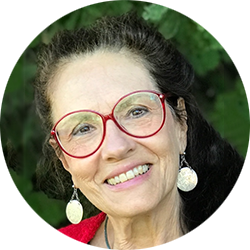
Kylea Taylor, MS, LMFT
Kylea Taylor, M.S., LMFT is a licensed psychotherapist (CA MFC #34901) who has been thinking, writing, and teaching about ethics for almost three decades. She developed InnerEthics®, a self-reflective, selfcompassionate, approach to relational ethics which she is now teaching in psychedelic psychotherapy trainings…
Read more
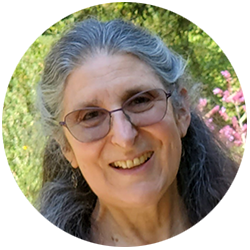
Selene Kumin Vega, PhD
Selene Kumin Vega, PhD is a licensed psychotherapist (CA MFC #32604), workshop leader, and dancer as well as core faculty in Saybrook University‘s College of Integrative Medicine and Health Sciences. Selene’s work with movement and other experiential modalities has evolved over many years of teaching…
Read more
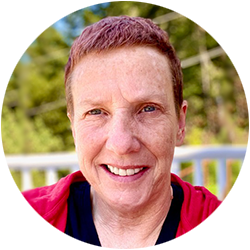
Clancy Canvar, PsyD
Clancy Cavnar has a PsyD from John F. Kennedy University, a master’s in counseling from San Francisco State, and a master of fine arts degree in painting from the San Francisco Art Institute. She works as a clinical psychologist in private practice and is Associate Director of Chacruna Institute…
Read more


“As a trauma psychologist it really was so good at giving all of the important pieces of entering PAT from a scientific, inclusive, and intrapersonal stance. I love how it included the best and most relevant psychological theory all from theorists, researchers, and people leading the work.”
Karmen Thulin, PsyD
Texas
Home Group Facilitators

Emily McKay, MA, LPC
Emily is a Licensed Professional Counselor and a Ketamine Assisted Therapist at Integrative Psychiatry Centers in Boulder. She received her master’s degree in Contemplative Psychotherapy and Buddhist Psychology from Naropa University and is certified in Hakomi Mindful Somatic Therapy, and Psychedelic Assisted Therapy…
Read more
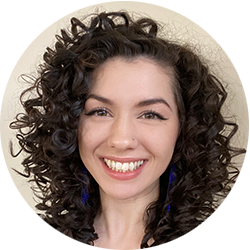
Mailae Halstead, M.S, NCC
Mailae Halstead is a Nationally Certified Counselor currently based out of Tolland, Connecticut. While much of her work is spent treating PTSD and OCD using empirically supported treatments, she is passionate about practicing psychedelic-assisted psychotherapy that centers cultural humility and empowerment…
Read more

Nancy Goodman, MA, LCSW
Nancy Goodman, MA, LCSW has been in private practice since 2002. Historically, she has specialized in perinatal mood disorders and maternal mental health, working with new and growing families. In the last decade she has shifted her practice to supporting adults (and very aware adolescents!) as they recover from trauma of all sizes and origins. She believes in finding ways…
Read more
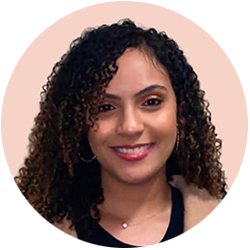
Radhalisa Zarzuela, LMHC
Radhalisa Zarzuela, LMHC is a bilingual Licensed Mental Health Counselor (LMHC) with a background in Trauma-Informed Cognitive Behavioral Therapy (TF-CBT) and anti-oppressive work, having served survivors of intimate partner violence, domestic violence, and other forms of gender-based violence and trauma. Radhalisa is also trained in level one Internal Family Systems (IFS)…
Read more

Aliss Wang, MA, AMFT
Aliss Wang, MA, AMFT, ELI-MA, is an Associate Marriage and Family Therapist and head injury integrations coach in California, with a MA in Integral Counseling Psychology from California Institute of Integral Studies (CIIS). She is in clinical practice at Bay Area Gestalt Institute and The Couples Center in San Francisco, and volunteers for Love Your Brain Foundation, UCSF-Benioff…
Read more

Elizabeth Willis RN, MS
Elizabeth Willis RN, MS, PMHNP(c) is a co-founder of the Organization for Psychedelic and Entheogenic Nurses (OPENurses) and has practiced as an emergency department registered nurse (ED RN) in critical care settings for a decade. Passionate about disaster response and humanitarian work, her nursing path has taken her as far as Bolivia, Ecuador, Cambodia, Laos, and Zimbabwe…
Read more

Drew Puxty
Drew is a licensed Psychologist who has experience working with individuals from the international community for a wide range of clinical disorders (e.g., depression, anxiety, trauma, addiction). In addition, his passion for the use of psychedelics for personal growth and transformation have led to contributions within the field of psychedelic research…
Read more

Kosu Boudreau
Kosu Boudreau is a graduate from IPI’s Psychedelic-Assisted Therapy Cohort #1 and currently works as a ketamine assisted therapist in Toronto, Canada. She also completed the MAPS MDMA therapy training. Kosu worked in healthcare as a psycho-spiritual therapist and clinical educator for over 15 years before entering private practice. She integrates somatic, experiential, psychodynamic…
Read more

Amy Margulies, MS, LPC
Amy is an IPI Certified Psychedelic Assisted Provider, engaged in research at the University of Wisconsin-Madison as a psychedelic assisted therapist. She has recently retired from her career as a mental health counselor, specializing in substance use concerns. Prior to becoming a therapist…
Read more

Mona Irrmischer
Mona Irrmischer is a Neuropsychologist and received a PhD researching the effects of meditation on the brain at the Vrije University of Amsterdam. She is an integrative body-oriented therapist, psychedelic assisted therapist, breathwork and mindfulness trainer…
Read more

Emily Hackenburg
Emily Hackenburg graduated from the College of New Rochelle in 2006 as a Family Nurse Practitioner. Her personal experiences with the healing potential of psychedelics have been transformational in her own life and has inspired her to pursue a path into psychedelic medicine. She’s a graduate of the Certificate of Psychedelic Assisted Therapies…
Read more
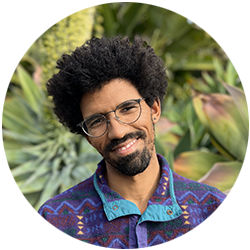
Carsten Fisher
Carsten Fisher is a behavioral psychologist by training, experienced in working with populations diagnosed with an array of mental health challenges, and is a passionate harm reductionist and educator. Carsten has been a student of psychedelic-assisted healing modalities and integration practice…
Read more

Liz Flores Farrell
Liz Flores Farrell (she/her) received her MSW from NYU Silver School of Social Work and has a private practice in NJ. She trained in Trauma Studies from the Manhattan Institute of Psychoanalysis (MIP), Heart-Centered Hypnotherapy, Somatic Experiencing, Ketamine Assisted Psychotherapy with Polaris Insight…
Read more

Comer Gaither
Comer Gaither has a doctorate in clinical psychology and works with children (in a school-based setting) in the mornings and with adults in the afternoon. He is trained in Hakomi, a mindful, somatic, psychotherapy, and is a part of the Hakomi South East trading staff. He supervises clinical psychology doctoral students at the University of Virginia…
Read more
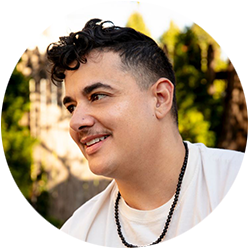
Jaime Dias Delgado, LCSW
Jaime Dias Delgado, LCSW (he, they) is a Culture & Identity consultant and trauma therapist with a practice rooted in liberation psychology. Jaime received an MSW from Fordham University and subsequently worked in professional-level foster care, intimate partner violence, youth gender and sexuality education, elementary education curriculum…
Read more

Teaching Assistants

Amanda Ream, LCSW, MSW, MEd
Amanda (she/her/hers) holds a dual-masters degree in Clinical Social Work and Human Sexuality Education from Widener University. Originally from Philadelphia, Amanda now resides in Denver, Colorado and runs a private psychotherapy practice here…
Read more
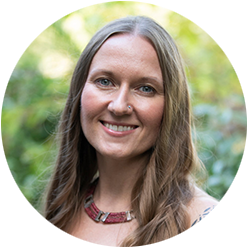
Jessica Breemen, MSW, SWC
Jessica Breemen, MSW, SWC has focused her energy on social entrepreneurship, micro-to-macro health & wellness, criminal justice and drug policy reform, full spectrum harm/risk reduction, benefit maximization, and integrative medicine-assisted care…
Read more

Coreen Herron, RN
Coreen Herron has been an RN for 12 years with a focus on end-of-life care. She attended the first cohort of IPI’s Psychedelic assisted therapy practitioner program and now provides ketamine psychotherapy in private practice…
Read more

Zane Guilfoyle, LPC, LAC
Raised in the Colorado mountains, Zane wears shorts and Chacos even in the midst of the winter. He enjoys skiing powder, “wander” hiking, “creative” camping and is always up for an adventure. With a master’s in counseling from Naropa University, Zane has a passion for LGBTQ communities and sexual health…
Read more

Susan Frederick, MD
Susan is Board Certified in both Adult Psychiatry and Child and Adolescent Psychiatry. She is also a certified Child, Adolescent and Adult Psychoanalyst. She works with individuals, families and couples. She also works with a wide range of mental health concerns including depression…
Read more

Anya Ravitz, LCPC, NCC
Anya (she/they/he) is a queer therapist living in Chicago. She has been providing ketamine-assisted therapy as lead therapist at Field Trip Health’s Chicago clinic since February, 2021. Anya has worked with IPI since July, 2021, helping to support students as they learn about psychedelic assisted therapy…
Read more

Tori Buckley, MA, LPC
Tori (she/her) received a master’s degree in Transpersonal Counseling Psychology from Naropa University, and is a Licensed Professional Counselor in both Louisiana and Colorado. She is a graduate of the first cohort of IPI’s Psychedelic-Assisted Therapy Training program…
Read more

Jordan Dobrowski, LCSW
Jordan is LGBTQ-affirming and has experience working with individuals from a variety of cultural and spiritual backgrounds. Her clinical interests include individual, partner, and family therapy; treatment-resistant depression; sexual and gender identity development; trauma recovery…
Read more
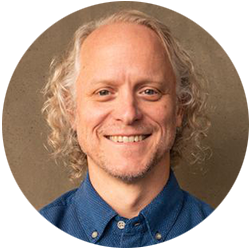
Kris Isaacs
Kris Isaacs is a registered licensed therapist and certified addictions specialist in the state of Colorado. He received Master of Arts in Transpersonal Counseling Psychology from Naropa University in Boulder Colorado and is a graduate of IPI’s Psychedelic Assisted Therapy training, Cohort 2…
Read more

Jessica Cook
Jessica Cook, MA, LMFT is a passionate couples and family therapist in Denver. With over 12 years of experience, she continuously strives to support her clients in reaching their potential as they enhance their relationships and connections to the world around them…
Read more

Thad Frye
Thad Frye is a Licensed Clinical Social Worker in private practice in Boulder, CO. He specializes in a somatic modality called Brainspotting. Thad is a certified Brainspotting Consultant who supervises therapists wanting to become certified in the modality. In his private practice he specializes in grief, sports performance and psychedelic integration…
Read more

Hannah Dresdner
Hannah Dresdner, LCSW (she/her) is a bilingual (English & Spanish) Denver based, telehealth therapist. Her practice incorporates a holistic approach hinging on modalities aimed at supporting processes of mind, body, and spirit. She is trained in EMDR, Somatic Therapies, Psychedelic Assisted Psychotherapy…
Read more

Sonya Som
Sonya Som, MA, LMFT, LPCC, provides psychotherapy, hypnotherapy, the therapeutic integration of psychedelics, EMDR, and Brainspotting to individuals and couples. She feels passionately about the healing effects of psychedelics and the greater collective’s need for deep healing and growth…
Read more

Leadership Team
The psychedelic therapy training is led by top-tier experts in their respective fields, teaching you the latest breakthroughs in psychedelic-assisted therapy.

Will Van Derveer, MD
Co-Founder
Medical Director
Will Van Derveer, MD, Co-Founder of the Integrative Psychiatry Institute and Integrative Psychiatry Centers, conducted MDMA clinical research and provided MDMA-assisted psychotherapy with MAPS for several years. He has been providing and teaching others how to provide ketamine-assisted therapy for several years. In the 2021 publication of the “Handbook of Medical Hallucinogens”…
Read more

Keith Kurlander, MA, LPC
Co-Founder
Clinical Director
Keith Kurlander, MA, LPC is the Co-founder of the Integrative Psychiatry Institute and the Integrative Psychiatry Centers. He has practiced integrative psychotherapy for over a decade. After years of treating highly complex patients, as well as a personal journey of overcoming complex mood-related issues, he turned toward integrative psychiatric practices as a key component to understanding the healing process…
Read more

Jaime Davila, MA, LPC
Course Director
Jaime received his Master of Arts in Counseling from Regis University and is a Licensed Professional Counselor in the state of Colorado. Originally Born in Puerto Rico, and raised in a military family, Jaime has spent time in Europe, Central America, and many states in the US. He brings a unique blend of interpersonal, analytic and technical skills to his healing work and also provides services in Spanish…
Read more

Rohini Kanniganti, MD
Physician Team Lead
Rohini serves at The Denver Hospice and Optio Palliative Health Services. Board Certified in Family Medicine, Dr. Kanniganti has been practicing in Colorado for over a decade. Dr. Kanniganti graduated from Penn State University with a Bachelor of Science in Chemistry and received a Master of Science in Public Health and medical degree from the University of North Carolina…
Read more

Sara Gael, MA, LPC
Lead Facilitator
Sara is a psychedelic therapist and educator with expertise in MDMA-Assisted Therapy, ketamine-assisted therapy, psychedelic risk reduction, and psychedelic professional development. She served as the Course Director for the IPI Psychedelic-Assisted Therapy Training from 2020-2022 and currently serves as Lead Facilitator for the training…
Read more
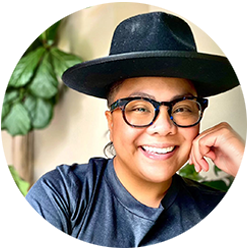
Wilhelmina De Castro, LCSW
Diversity, Equity & Inclusion Consultant
Wilhelmina De Castro, LCSW (She/They) is trained in KAP (Ketamine Assisted Psychotherapy) through PRATI (Psychedelic Research and Training Institute) and MDMA Assisted Psychotherapy through MAPS (Multidisciplinary Association of Psychedelic Studies. In addition to supporting IPI with building DEI initiatives, Wilhelmina works as PRATI’s KAP Training Scholarship Program Coordinator…Read more

Jaime Dias Delgado, LCSW
Diversity, Equity & Inclusion Consultant
Jaime Dias Delgado, LCSW (he, they) is a Culture & Identity consultant and trauma therapist with a practice rooted in liberation psychology. Jaime received an MSW from Fordham University and subsequently worked in professional-level foster care, intimate partner violence, youth gender and sexuality education, elementary education curriculum…
Read more

Mailae Halstead, M.S, NCC
Diversity, Equity & Inclusion Consultant
Mailae Halstead is a Nationally Certified Counselor currently based out of Tolland, Connecticut. While much of her work is spent treating PTSD and OCD using empirically supported treatments, she is passionate about practicing psychedelic-assisted psychotherapy that centers cultural humility and empowerment…
Read more

Blakely Saucier
Head of Faculty & Retreats
Blakely Saucier received her BFA in Theatre Design and Technical Production from the University of Memphis, and spent the first ten years of her career working as a Stage Manager, Lighting Designer, Program Manager, and Artistic Director for both professional and youth theatre companies. Equipped with a passion for plant medicine, community engagement…
Read more

Jay Thooft
Director of Group Engagement
Jay serves as the Director of Group Engagement with IPI overseeing the enrollment for the Psychedelic Assisted Therapy Training Program. Jay works with individual students as well as large group practices, hospital systems, and behavioral health clinics to get their clinicians up to speed on Psychedelic Assisted Therapy…
Read more
“Amongst the programs offered in this country right now, this program is rich in that it is grounded in both clinical, medical, & spiritual areas of psychedelic therapy.”
Karen Schanche, LCSW, California
IPI Psychedelic-Assisted Therapy Program Participant

Earn Continuing Education Credits (CE)

In support of improving patient care, this activity has been planned and implemented by CME Outfitters, LLC and Integrative Psychiatry Institute, LLC. CME Outfitters, LLC is jointly accredited by the Accreditation Council for Continuing Medical Education (ACCME), the Accreditation Council for Pharmacy Education (ACPE), and the American Nurses Credentialing Center (ANCC), to provide continuing education for the healthcare team.
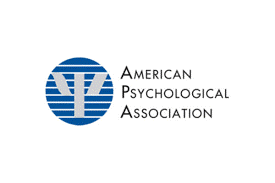
Continuing Education (CE) credits for psychologists are provided through the co-sponsorship of the American Psychological Association (APA) Office of Continuing Education in Psychology (CEP). The APA CEP Office maintains responsibility for the content of the programs.
FYI … No Partial Credit.
For programs that involve a variety of sessions (e.g., conferences, conventions), credit should be awarded on a session-by-session basis. Each individual session for which credit is awarded must meet the Standards and Criteria; e.g., each session much have its own stated learning objectives, each session must be evaluated separately. Providers must have a system for determining which sessions were attended (e.g., sign-in sheet, credit log).
This activity is approved for 19.75 CE credits.
Earn Continuing Medical Education (CME) Credits

Physicians (ACCME): We were approved for 19.75 AMA PRA Category 1 Credit(s)™ and are anticipating approval for this cohort as well. Physicians should claim only the credit commensurate with the extent of their participation in the activity.
In support of improving patient care, this activity has been planned and implemented by CME Outfitters, LLC and Integrative Psychiatry Institute, LLC. CME Outfitters, LLC is jointly accredited by the Accreditation Council for Continuing Medical Education (ACCME), the Accreditation Council for Pharmacy Education (ACPE), and the American Nurses Credentialing Center (ANCC), to provide continuing education for the healthcare team.
*Please note that this program is not available for NBCC credit.
What You’ll Get
The IPI Psychedelic-Assisted Therapy Training has been designed to take advantage of recent advances in online education, with 250 hours of learning, allowing participants to get involved with psychedelic therapy and to sharpen your skills and get certified if you are already practicing.
Every session is recorded in your online library, and readily available, in case your schedule does not permit you to attend a certain session online. In addition, you will have access to your online library for an entire year after the program ends

Online Prerequisite Modules
This 21 hour series, available to you before the start of the actual program, is designed to introduce the basics so you can get started learning today.
Virtual Intensive I
Our training begins with the Live Virtual Intensive consisting of highly-engaging talks by expert faculty where you will learn the fundamentals of psychedelic-assisted therapy while building community.

Online Lectures
10 months of weekly 60 minute online lectures and panel discussions to help you become an expert in psychedelic-assisted therapy.
Large Group Seminars
10 Months of bi-weekly 120 minute online groups in breakout rooms where you will practice and discuss different techniques of psychedelic-assisted therapy.

Home Group Sessions
Two zoom calls per month in your small group assignments discussing cases, homework and other relevant topics.

Community Forum
Community discussion and interaction with teaching assistants and faculty will occur through an innovative private online portal throughout the program, to ensure you have the support to maximize your learning experience
Virtual Intensive II
Our training wraps up with Live Virtual Intensive, with advanced topics and innovative specialized methods to ensure participants are confident in their new knowledge, and have the expertise to apply it correctly in their practices.

In-person Ketamine Training Practicum (Optional)
Attend a 3-day intensive in Boulder, Colorado with your training cohort where you will have the opportunity to practice with participants on ketamine. You will also have the opportunity to experience receiving a ketamine-assisted therapy session as a training method if you qualify.

In-person Psilocybin Training Practicum (Optional)
Attend a 4-day, hands-on psilocybin experience in Eugene, Oregon, designed to deepen your understanding of classical psychedelics and explore emergent group dosing formats. Within a 12-person group, you’ll alternate between the roles of guide and participant, offering an enriching opportunity for learning and self-discovery. Physical attendance is necessary to meet the “Certified Psychedelic Assisted Therapy Provider” certification exam criteria; however, undertaking a psilocybin therapy session at this training is optional. Please note, additional practicum requirements apply in order to complete Colorado and Oregon requirements.

“This training has been well organized, professional and so very inspiring! It brings together all of the elements that are at times siloed in medicine, mental health and spirituality. Highly recommend!”
Amy Schimmel, LCSW
Arizona
Curriculum Details
In order to create a program that leads to a certification, the program focuses on five modules to gain expertise as a psychedelic-therapy provider.
Research and Science
- Explore the current psychotherapy research protocols
- Grasp the chemistry and pharmacology
- Learn about proposed mechanisms of action
- Get up to date on MDMA, Psilocybin, and Ketamine research
- Find out about the history of psychedelic research
- Understanding dosing protocols
- Medical safety issues to know about
- Regulatory Compliance topics
Therapeutic Process
- Use techniques specific to psychedelic therapy
- How to work with the Inner Healing Intelligence
- Applying attachment theory in therapeutic process
- Implementing somatic therapy techniques, parts work, & IFS
- How to be with non-ordinary states of consciousness
- Understanding Trauma Neuroscience
- Providing adequate preparation and integration
- Essentials of the Set and Setting
- Navigating the safe uses of therapeutic touch
Integrative Treatment Planning
- How to achieve values-based behavior change
- Addressing an expanded spectrum of root causes
- What to know about medications and supplements
- How to maintain progress with lifestyle changes
- Mind-body practices to support integration
- Basic nutritional recommendations for optimal mental health
Professional Development
- Psychedelics inside an integrative model of mental health
- Essentials of harm reduction
- Ethics in psychedelic assisted therapy
- Providing culturally competent care
- Diversity, Equity, Inclusion in psychedelic medicine
- Addressing access to care issues
- Professional Liability
- Policy, Advocacy, and Collaboration
- Learn about clinic models and individual psychotherapy
practice settings
Intrapersonal Development
- Therapist Self-Regulation
- Transference and Countertransference
- Protecting boundaries in psychedelic sessions
- Practicing therapist self-care
- Exploring breathwork
- Embracing ongoing personal growth work
- Understanding the importance of mystical & spiritual
experiences - Using meditation & mindfulness for self exploration
- Developing therapist self-growth practices
Limited spots available
“I came in as a skeptic. I really appreciated the validated, evidence-based information presented from the finest ivy league institutions.”
Lorna Benton, LCSW, Colorado
IPI Psychedelic-Assisted Therapy Program Participant
Diversity, Equity, and Inclusion
At IPI we take the position that different perspectives and backgrounds are necessary for a vibrant community to thrive. In the field of psychedelic-assisted therapy, there are not enough providers who identify as members of groups who have been oppressed or marginalized. Particularly poignant is the reality that therapists who do not identify as members of the BIPOC and LGBTQIA+ communities struggle with providing care that is both culturally competent and sensitive to the unique challenges of oppression and marginalization. We are committed to a diverse faculty, equity among the learners and education that creates cultural competency.
Scholarships
BIPOC & LGBTQIA+ Scholarships
At IPI, we understand that different perspectives and backgrounds are necessary for a vibrant community to thrive. In the field of psychedelic-assisted therapy, there are not enough providers who identify as members of groups who have been oppressed or marginalized. Particularly poignant is the reality that therapists who do not identify as members of the BIPOC and LGBTQIA+ communities can struggle with providing care that is both culturally competent and sensitive to the unique challenges of oppression and marginalization. In support of our commitment to inclusivity and diversity, we will award 25 scholarships at a 50% discount to qualified applicants who demonstrate financial need. Please sign up for a call and you will receive instructions afterward on how to apply. Scholarships are awarded on a first-come, first-served basis.
Veteran Discounts
We are committed to support military veterans to gain access to training in psychedelic-assisted therapy. If this is you, please ask about our 30% discount for veterans on your discovery call.
Need-Based Scholarships
We understand that psychedelic therapy training is a considerable investment and not everyone has the resources in order to undertake a comprehensive program as such. In support of our commitment to inclusivity and diversity, we will award 25 needs-based scholarships at a 50% discount to qualified applicants. Please sign up for a call and you will receive instructions afterward on how to apply. Scholarships are awarded on a first-come, first-served basis.
In-person Ketamine-Assisted Therapy Training Practicum in Boulder, Colorado
Friday, Saturday, Sunday
Dates: TBD
A unique feature of this program is the opportunity to gather in person with a group of fellow learners for a 3-day (Friday, Saturday, Sunday) Training Practicum in Boulder, CO. Experiential learning is considered by many psychedelic therapy pioneers to be essential to gaining proficiency in psychedelic therapy. Gathering with colleagues to learn about psychedelic therapy is also a great opportunity to build community.
During this Training Practicum, you will practice and will also be given the option to participate as a client. Participating as a client is not required to attend the Training Practicum. This practicum is optional and not required for certification.

How Can I Use This Psychedelic Training?
The IPI certification is designed for qualified professionals who already have a significant foundation of relevant training and experience providing mental healthcare. Certification and certificates of completion will be awarded upon successful completion of the program and demonstrating core competencies.
The only psychedelic medicine currently available to provide in a medical setting in the United States is ketamine. In this program you will learn about how to get involved, ethically and safely, with ketamine-assisted therapy. MDMA- and psilocybin-assisted therapy are currently in phase 3 FDA trials, and [for now] remain on US DEA schedule 1, making them illegal to use outside an approved research setting. As a training institute, we support following the outcomes of validated research, and, upholding the laws of the country in which you reside.
“I would undoubtedly recommend this program to others. Now I understand how I going to use this as a professional.”
Marat Shpolyansky, NP, California
IPI Psychedelic-Assisted Therapy Program Participant

Our Guarantee
Our commitment to furthering your education
The knowledge, experience, and confidence you will gain from attending the IPI Psychedelic Assisted Therapy Training is unparalleled.
No other program provides a learning experience like this, from the quality of training to the world-class faculty ready for your every question.
The IPI Psychedelic Therapy Training is a year-long online course that will not only help you feel confident providing ketamine, but will also bring your knowledge base up to date on the latest evidence.
Make an investment in yourself and your education. Take your practice to a new level of patient care.
And if you’re not happy with the program, you can get a full refund within the first 30 days after the date that you pay and register. Simply reach out to our team, let us know what we could have done better, and your refund will be on its way.
Have more questions? [email protected]
What Others Are Saying About The Program
“The program is highly comprehensive and well organized. I really liked the variety of perspectives that the presenters came from. The IPI staff did an amazing job organizing the event and managing any and all technical issues. I would highly recommend to anyone interested in learning more about psychedelics and psychedelic therapies and research.” -Shane LeMaster, LAC Colorado
“The intensive was phenomenal. Even more than I expected. Impressive lecturers and participants. Well organized. Participants are genuine and eager to learn.” -Leslie Madrak, DO New Jersey
“The presenters so far in this program have been phenomenal and engaging. The breadth of subjects in this psychedelic wellness field are highlighted very well. You can tell the organizers put a lot of care and thought into this program.” -Samantha Supit, LMHC California
“From the moment this training started, I found myself captivated by the instructors, course developers, leadership, and last but not least, my fellow students. It is phenomenal to see so many disciplines come together to collaborate, learn, and lift one another up! I’ve already learned so much, and continue to be inspired.” -Megan Sweeney, MPH California
“The lectures were well-organized and provided a wide foundation for psychedelic practice. The emphasis on being an ethically grounded practitioner was especially welcomed.” -Anya Ravitz, LPC Illinois
“The incorporation of a wide range of topics beyond the psychedelics such as integrative health, artists, visionaries, harm-reduction, racism – everything is so welcome and needed. Thank you for the great variety which will inform my practice for years to come.” -Liz Willis, RN California
“Mind. Blown.” -David Sherman, LPC Colorado
“This program is so much more than learning techniques but is a deep personal and collective dive into a greater possibility for human potential.” -Kathleen Friend, MD Arizona
“This experience will teach, inspire, connect, and ignite. If you are passionate about a better, more peaceful and loving world, where optimal mental health is the standard of all care, I recommend this training.” -Matt Jacobson, PsyD Hawaii
“I felt truly inspired by the caliber of faculty and information presented and also by the fellow attendees.” -Alexandra (Sasha) Teter, MFT Massachusetts
“Fantastic experience. Delved into the breadth and depth of psychedelics. Something for everyone. Extensive medical and psychological research, as well as experiential practices and talks from leaders in many fields. Just wow!” -Sonya Som, MFTC Colorado
“The PAPT program is not only about a new professional journey, this is a life changing interpersonal journey. I am so excited to be a part of this magic! ” -Rachelle Van Winkle, DNP North Carolina
“Outstanding experience. The very high quality of the presentations is remarkable. The globally regarded teachers, the spirit of the training in IPI’s DNA. All really exceptional.” -Wayne Martin, LCSW Texas
“It was amazing to get to hear from some of the most brilliant minds in the field of psychotherapy. I also felt a great sense of warmth and community from the other participants and am excited about the opportunities for professional and personal connections this training is creating. A sense that we are being held in a safe container with a well thought out structure for guiding us through this burgeoning field of psychedelic psychotherapy.” -Leah Smith, LMFT California
“I’m so grateful to have been accepted into this program and to be a part of what I believe to be a ground breaking experiencing. Thank you IPI for this wonderful opportunity and learning experience. ” -Huy Vo, CRNA California
“IPIs PAPT training program really respects the art, purpose, and impact of psychedelics without question. You not only learn about PAP, but you learn how to pursue and use this therapy in a way that is embedded within our humanity.” -Christopher Welch, MFT Tennessee
“The program scope, topics and presenters are great, and I am excited to continue growing and learning.” -Vanessa Merlis, LCSWR New York
“This far surpassed my expectations. It was a grand vision, and IPI delivered. I feel incredibly fortunate to have had access to so many experts, and to start conversations about the future of mental health that I have been wanting to have for years.” -Emily McKay, LPC Massachusetts
“This training alone has been transformational, planting the seeds for what I shall be working to bring to fruition. I feel incredibly full. I was deeply emotional this morning. I feel like I’ve already been on a journey.” -Rebecca Schillenback, MDiv New York
“I’ve found the training to speak to areas I know very little about and areas I thought I knew a lot. Very thankful for both the breadth and depth of the training.” -Anthony Dummermuth, LCPC Kansas
“The Integrative Psychiatry Institute’s commitment to the progress of mental health conceptualization and care is training a population of providers who are sensitive to the many facets of the human experience. This multidimensional view will help us all to view our own individual and collective wellbeing in holistic, responsible, practical, creative and beautiful ways. Many thanks to all who create this exquisite platform for learning. I will participate in absolutely every program you offer.” -Amy Benton Krenz, PhD Colorado
“I am certain I came to the right place. The energy and professionalism is palpable, very impressed.” -Márton Mányai, Pastor Hungary
“Blown away by the breadth and depth of the presenters. Giants in the field, and deep souls as well. From neuroscience to cutting edge cultural competency to psychedelic art, I felt challenged and inspired and excited throughout the weekend. The fellow students are exceptional and I can’t wait to get to know them more.” -Sally Schwager, Reverend Connecticut
“This program is so much more than what I thought it could or would be. World thought leaders, therapy modality developers, researchers and artists all coming together to help shape us to develop ourselves into the best therapeutic facilitators possible. Just amazing!” -Angel Avila, LCSW New Mexico
“I just cannot express how grateful I am for being able to attend this online training, living in Italy and not knowing anybody working in this field. It feels very “lonely” sometimes. I already feel like this training is beautifully filling the void I was experiencing, prior to being able to connect with this amazing community. Thank you!” -Eleonora Zuliani, Psychologist Italy
Frequently Asked Questions
When are the online lectures?
Our online lectures will be scheduled in a regular time-slot during business hours so you can plan your schedule accordingly. However, if you cannot attend any of these lectures you will always have access to recordings of them in your online library.
What type of mentorship will I receive?
There will be time during the large group seminars for feedback from teaching assistants, as well as during the live experience if you attend. In addition there is time for Q+A during every live lecture, as well as a community forum. You will also be assigned to a small group mentorship video call that meets for an hour twice a month with rotating faculty, where you can review case studies and ask further questions. The mentorship calls will also be added to your online library.
How long can I access my course materials?
Your course materials will be available for a full year following the completion of the program.
Will I be automatically certified at the completion of the program?
Currently, no national board certification exists for psychedelic-assisted therapy. If you choose to partake in the optional live Training Practicum, you will become eligible for certification and will be awarded it upon successful completion of the program and demonstrating core competencies. If you choose not to participate, you will still receive a certificate of completion upon successful completion of the program and demonstrating core competencies.
Do I have to attend the two live intensives?
You are expected to attend both online conferences. We will be doing important group exercises, in addition to other community building activities. Please contact us with any extenuating circumstances.
When will I get access to the prerequisite materials?
Immediately! As soon as you register, you will have received an account on the IPI website. The prerequisite material will be uploaded over the course of March.
What format are the recordings in?
Recordings are video, audio and transcripts. Generally, a slide deck is also used by the presenter.
What are IPI’s equity practices?/ How do I know IPI is safe for *my marginalized identity experience*?
– Scholarships and affinity weekends/opportunities
– Current gender program audit with plans for ongoing audits of curriculum
– Infusion of JEDI competencies throughout versus one or two DEI specific lectures the whole year


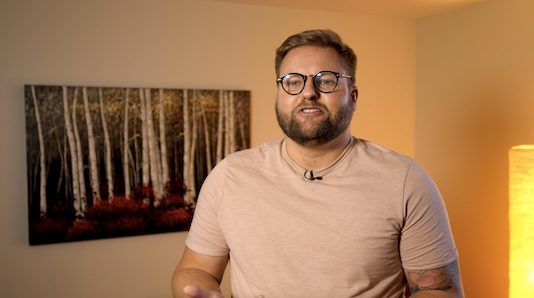
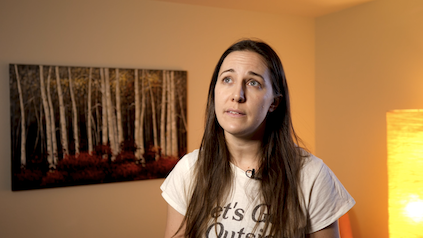
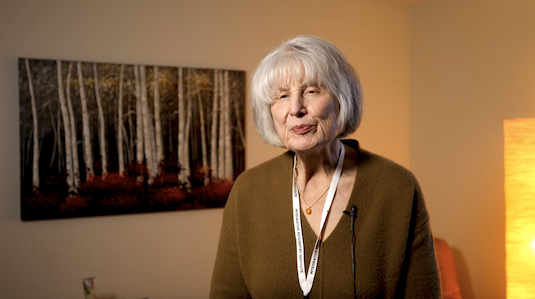
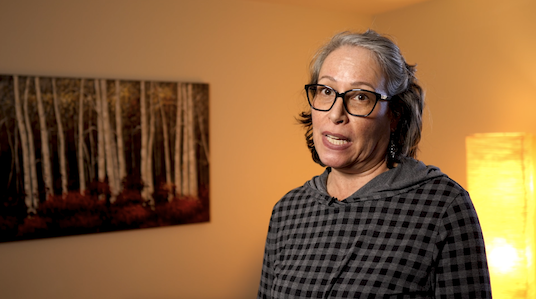
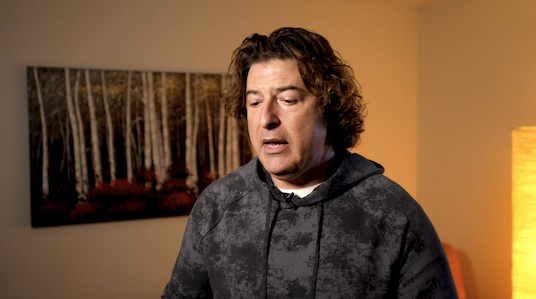





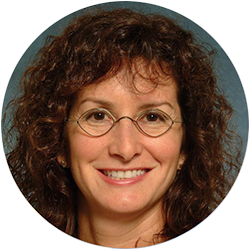






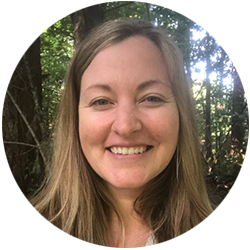
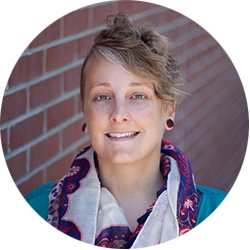
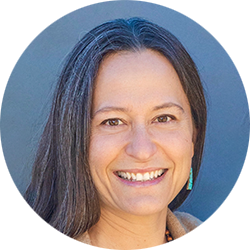
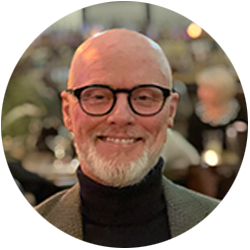
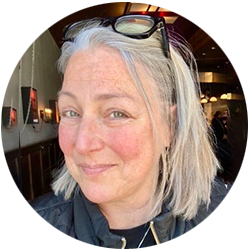
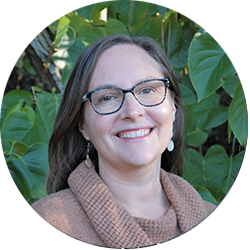
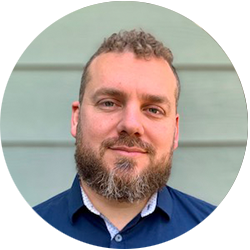
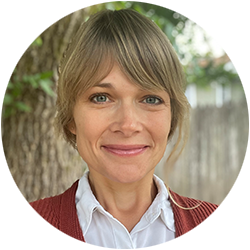


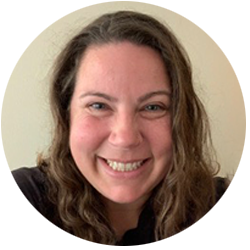




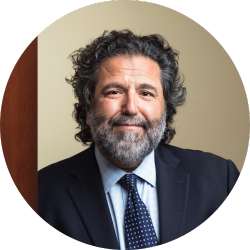



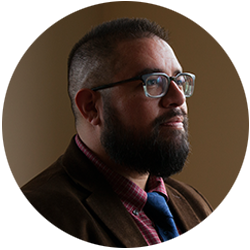




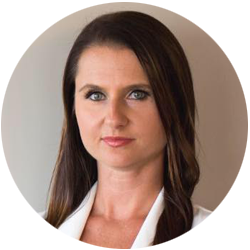

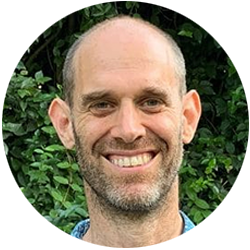
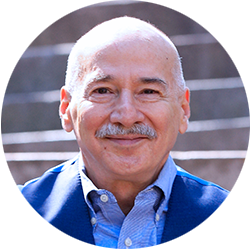


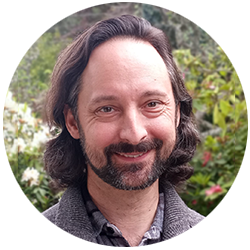
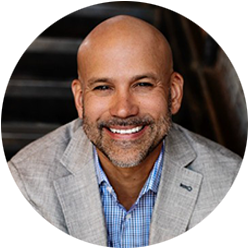


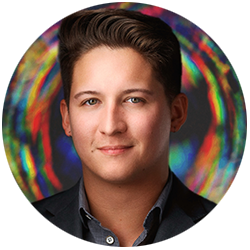

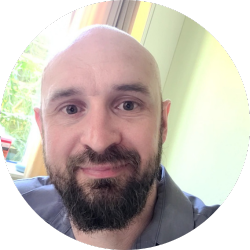
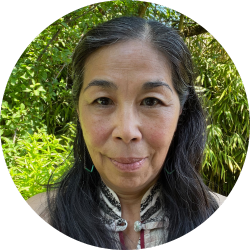
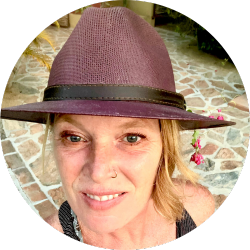



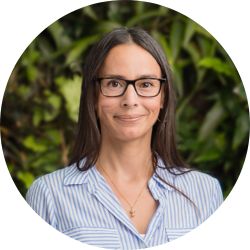










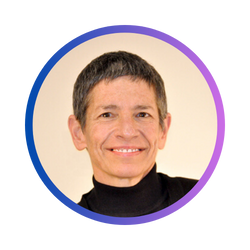







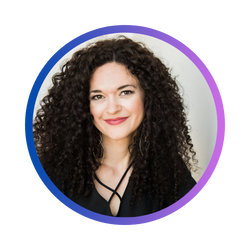




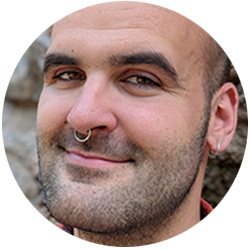



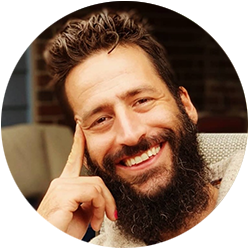
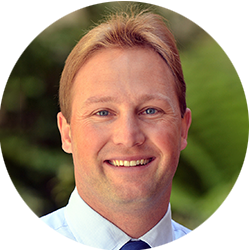

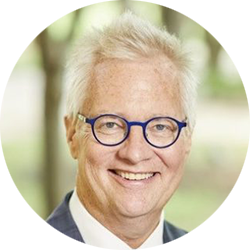


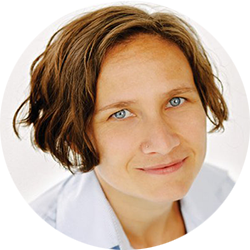
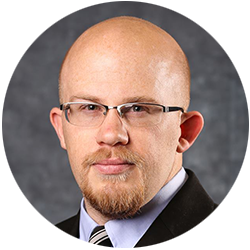


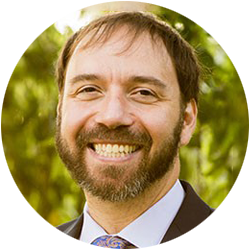






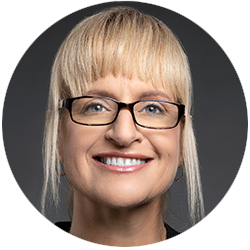





 Nancy Goodman, MA, LCSW
Nancy Goodman, MA, LCSW

